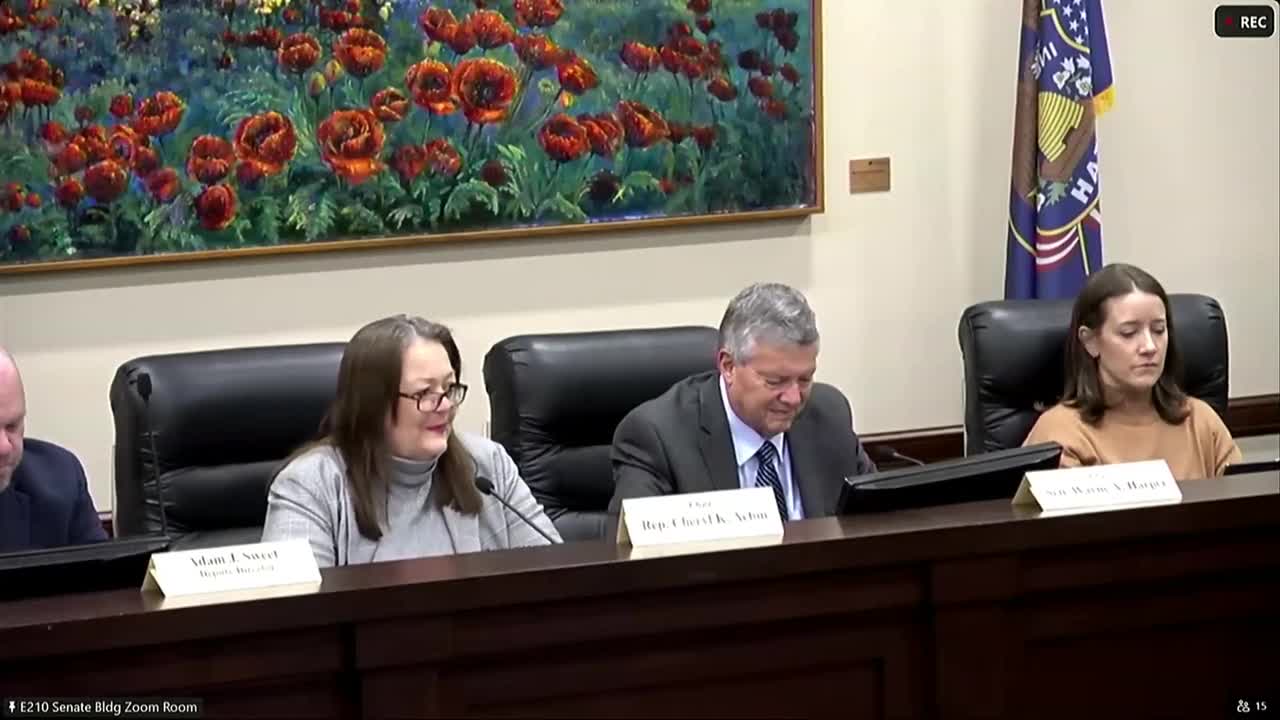Interim Medicaid inspector general briefs committee; auditors' report spurs governance questions
Get AI-powered insights, summaries, and transcripts
Subscribe
Summary
The interim inspector general and program analyst for the Utah Office of Inspector General for Medicaid Services briefed the committee about the office's audits, investigations and metrics. Committee members raised concerns about governance and management after a recent legislative audit and said they expect additional legislative follow-up.
Neil Erickson, interim inspector general for the Utah Office of Inspector General for Medicaid Services (UOIG), and Elise Knapper, program analyst, presented an overview of the office's duties, recent activity and metrics to the Retirement and Independent Entities Committee on Oct. 25.
Erickson said he has been interim inspector general for about four weeks and noted recent management turnover. Knapper described the office's statutorily required role as the state's Medicaid program-integrity entity and said the UOIG's mission is "to protect taxpayer dollars by identifying fraud, abuse, and waste risks and vulnerabilities in the state Medicaid program and then by taking action to mitigate or eliminate those risks." She summarized the office's four core activity pillars: intake and triage of referrals, investigations, audits and policy review.
Knapper and Erickson provided performance context: the office works with large claims datasets and medical records; UOIG has averaged roughly $3.69 million per year in identified overpayments over the last five years and about $19 million per year in measured cost avoidance from 2021 to present. Erickson said the office is operating with 18 staff (noting that a historically planned staffing level is higher) and reported that the oversight universe includes roughly $5 billion in Medicaid expenditures and more than 25 million claims or capitations paid in fiscal year 2024.
Committee members focused much of the discussion on governance and the findings of a recent legislative audit. Senator Escamilla urged the chairs to bring the legislative auditors before the committee, saying the audit identified "massive gaps" in management processes and accountability. Several legislators noted the office's statutory status as an independent entity complicates lines of oversight. Representative Peterson asked why the audit had been heard in multiple interim committees and whether reporting requirements and oversight could be clarified.
Erickson and Knapper said they had begun internal reforms to implement audit recommendations and that they welcome engagement with legislators; they noted that some referrals proceed to the state's Medicaid Fraud Control Unit for criminal investigation and prosecution. Committee members discussed several bill files that have been opened to address governance and oversight of the UOIG, and several members said they would expect follow-up briefings and potential statutory changes in the coming interim.
The committee did not take action on the presentation but discussed possible next steps, including inviting legislative auditors back and tracking legislation addressing UOIG governance.
